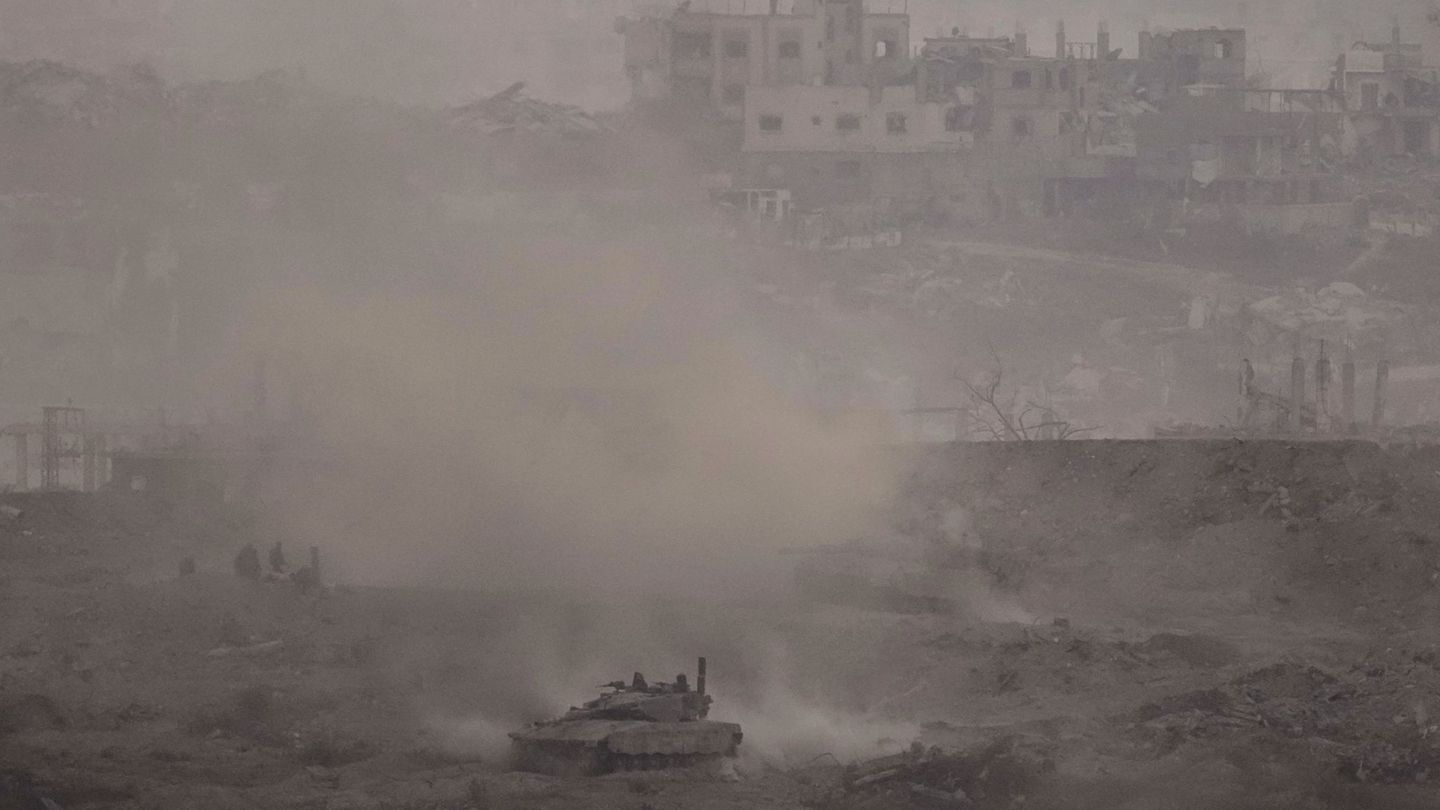Bundeswehr
Merz: Defend every inch of the NATO territory
Copy the current link
Add to the memorial list
The Federal Chancellor sees the beginning of a “new era” for the Bundeswehr. In Vilnius, the Panzerbrigade 45 “Lithuania” is set up with a solemn appeal and determined words.
Chancellor Friedrich Merz has guaranteed decided steps in Lithuania to set up Panzerbrigade 45 in Lithuania for the military defense in the alliance. The Federal Government also agreed to the goal of increased by NATO Secretary-General Mark Rutte to increase defense expenditure to 3.5 percent of the gross domestic product and to give another 1.5 percent for militarily necessary infrastructure, said the CDU politician in the capital Vilnius.
“These are two figures that we could approach from the perspective of the federal government. They seem sensible to us, they also appear accessible to us, at least in the given period until 2032,” said Merz. Merz had traveled to the medium of the Lithuania Brigade.
Merz sees the beginning of a “new era” in Lithuania
“Anyone who threatens a ally must know that the entire alliance will defend every centimeter of the NATO territory together,” said Merz when listing the armored brigade, which bears the nickname “Lithuania” and is the first association in the history of the Bundeswehr.
Merz also spoke of the beginning of a “new era” for the Bundeswehr. He confirmed that he wanted to make the Bundeswehr the strongest conventional army. “This is appropriate to the most populous and economic country in Europe,” he said.
Solemn appeal for commissioning
Defense Minister Boris Pistorius (SPD) from Berlin also traveled to the solemn appeal with 800 soldiers on the cathedral square in Vilnius. He described Russia as the foreseeable time of peace for peace in Europe. “Ducking off and defense are Germany’s top priorities,” he said.
It is important to be prepared and demonstrate this. “The coming months and years will require coordination, determination and perseverance. But above all, trust and unity will be necessary,” said Pistorius. And: “There can and must not doubt that we will meet our obligations.”
Lithuanian President Gitanas Nauseda spoke of a historical day. “A day of trust, responsibility and trade,” he said. This shows everyone that Lithuania has become the security of Germany.
German history as a reason for stationing
Pistorius announced the step in June 2023 during a visit to Lithuania after a long discussion. At the time, he recalled that Germany was on the eastern flank of NATO until the end of the Cold War and had to rely on the backing of the NATO partners in an emergency.
Up to 5,000 soldiers by 2027
The brigade should be fully operational by 2027. A permanent presence of up to 5,000 soldiers is planned, the main location of which is to be a barracks to be built with a military training area in Rudninkai – near the border with Belarus. Until the completion, there will be transitional solutions in Lithuanian barracks near Vilnius.
The soldiers and their families in the big cities of Vilnius and Kaunas should live, where a school and a kindergarten are to be built up. The Bundeswehr has been present in Lithuania since 2017. At the moment, however, around 400 members of the group are stationed there.
Strategically important area for NATO
Lithuania borders on Belarus, which is closely allied with Russia, and the Russian Calining Rad on the Baltic Sea. A narrow NATO corridor from Lithuania west to Poland runs between these two countries-the so-called Suwalki gap, which could fight in the event of an attack. Russia could do the Baltic States by taking it from the rest of the NATO area.
The German troop presence for the small Baltic state with its 2.8 million inhabitants is accordingly important. The Lithuanian army belongs to only 15,000 soldiers, including 3,500 conscripts. It should be 17,000 to 18,000 soldiers by 2030.
Lithuania wants to spend 5 to 6 percent of GDP for defense
The war in Ukraine sees the Lithuanians as a direct danger to national security. The government in Vilnius is therefore massively upgrading the army. The Lithuanian defense spending should move between five and six percent of the gross domestic product (GDP) from next year.
dpa
Source: Stern
I have been working in the news industry for over 6 years, first as a reporter and now as an editor. I have covered politics extensively, and my work has appeared in major newspapers and online news outlets around the world. In addition to my writing, I also contribute regularly to 24 Hours World.




